Whistler Camping: Know Before You Go
It’s no secret that Whistler is just chock-full of scenic camping spots and unforgettable opportunities. In fact, it’s such a non-secret that people from all over the world travel to Whistler to camp, and often, that means that first-time campers are trying out their skills in our wild wonderland. Whistler camping is legit!
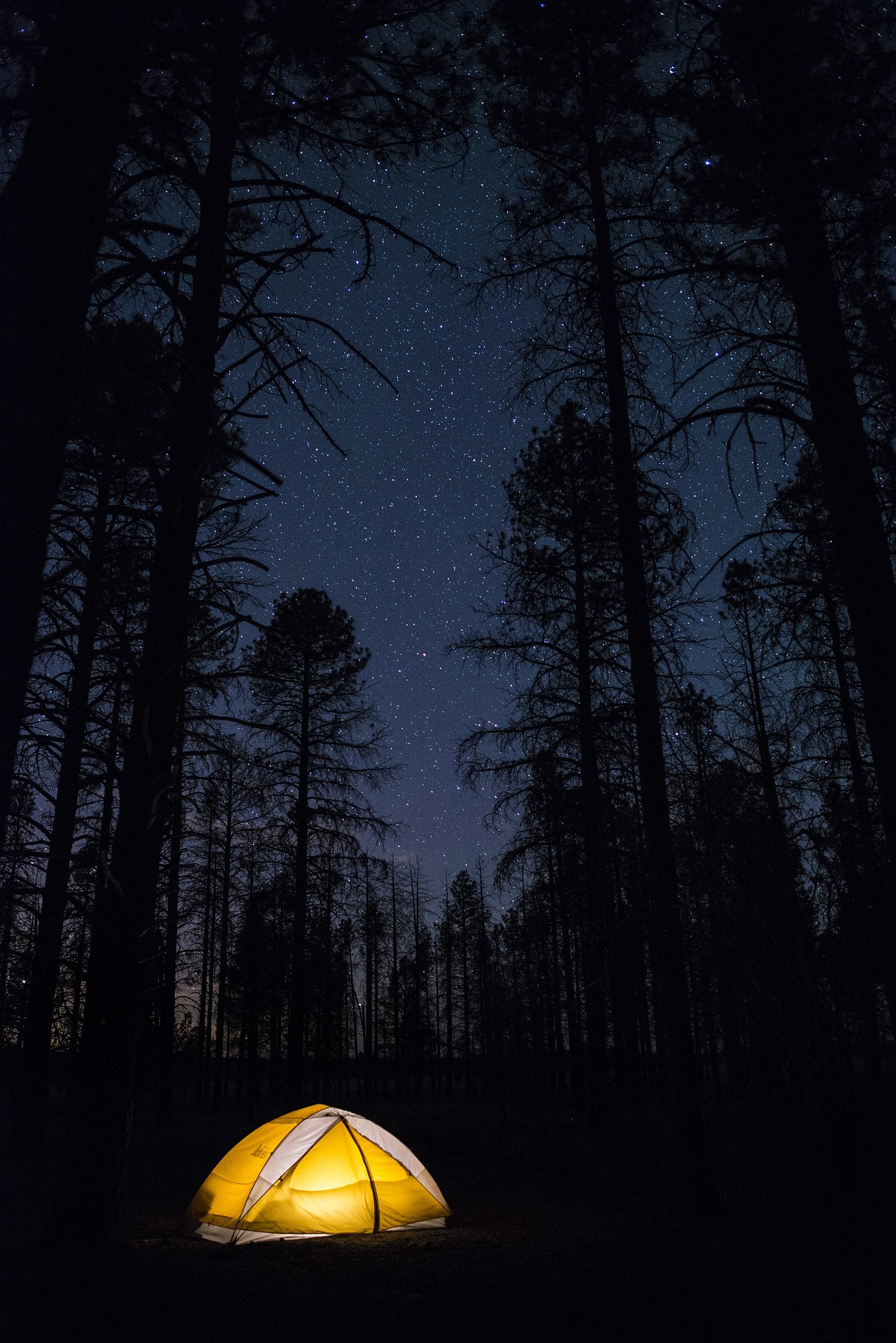
Whistler is a perfect place to camp for the very 1st time
We love the fact that we are often the very first camping experience people have, young and old alike. But, this can sometimes mean that inexperienced campers are trying their hands at camping in our beautiful backyard without the skillset that many of us Canadians are just born with. Afterall, have you ever encountered a bear before? If there is no cell service, who are you going to call for help?
Because we want to share this incredible experience with the world, but safely, we’ve put together the ultimate camping guide. We’ve compiled everything you need to know about camping in Whistler. It’s more than just the hot spots (though, we, of course, have a guide for that). Instead, we’ve put together a guide packed with information about how to camp, what to avoid, and some of the hard and fast rules of the Canadian forest that you cannot ignore.
How to Camp: Things to Remember
As we said, we couldn’t be more thrilled that people travel from all over the world to camp here – Whistler is beautiful, and we want nothing more than to share it. But that doesn’t mean we’re not sticklers for doing things the right way, and camping is no exception. Often, people who have never camped before are venturing into our wilderness in flip flops and halter tops. They can hurt themselves, and our natural resources, in the process.
Take a Course (or Two, or Three, or Four)
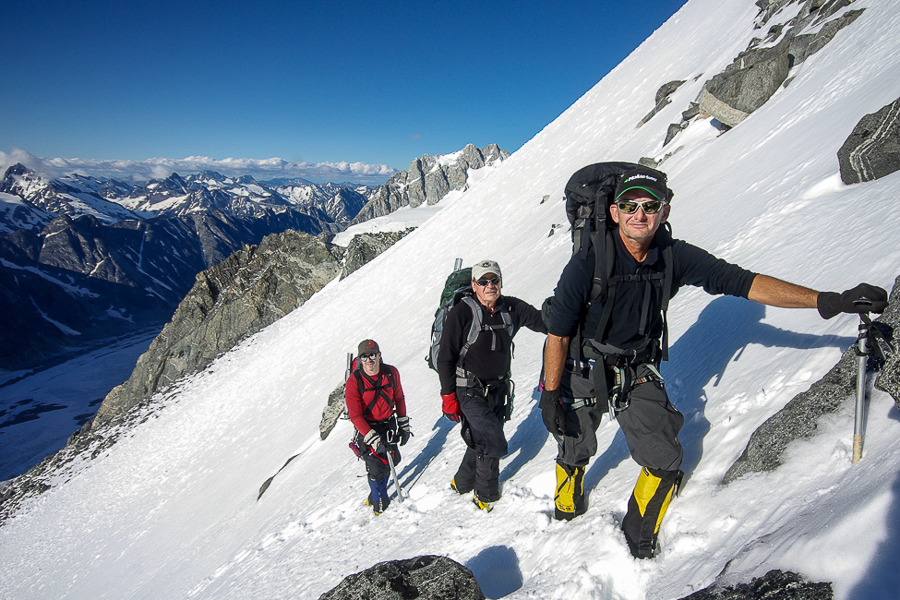
Become a backcountry pro with the Mountain School
So, what’s the solution? Learn how to camp, of course! There are tons of resources out there that can teach you everything you need to know. For example, one of the best places to find information about Whistler and the great outdoors, in general, is The Mountain School.
The Canada West Mountain School is the premier mountain training and guiding centre in British Columbia, and it’s been that way since 1982. They have guides and courses that can teach you all about British Columbia, specifics about things like avalanches, skiing, first aid, alpine, rock climbing, ice, and hiking.
The Mountain School has all the courses you need for everything you need to know about the British Columbia outdoors. They’re equipped with online courses, boots on the ground programs, and trips with certified guides throughout British Columbia and beyond. We certainly recommend utilizing any of these resources before your first camping trip in Whistler.
Hard and Fast Rules of Camping in Whistler
1. The Fire Ban is Serious, Don’t Mess Around

Fire season in BC is serious business.
Most people don’t know it, but the fire season in British Columbia was just as bad as the one in California. Which means, the fire ban plays a pivotal role during the summer months for Whistler camping. Don’t mess around with the fire ban. No fires mean exactly that, no fires! Don’t start them for warmth or for dinner, if you see a fire put it out.
The fire ban can start as early as the end of May and usually goes straight until the rainy season mid in late September. We know everyone wants to have that traditional campfire sing along, but if it gets out of control, nobody will be singing. It was so bad last year that someone accidentally started a fire at the base of Blackcomb mountain! For any smokers reading this, we also advise to never, ever throw your cigarettes out the window or leave them on the ground. Burning embers have started more than one forest fire.
It’s your responsibility to know what the current bans are in your area, so don’t be ignorant. Check out the fire bans and restriction types you should be looking out for here. Always know about bans and restrictions before you even think about lighting up a fire.
2. Take Only Pictures, Leave Only Footprints
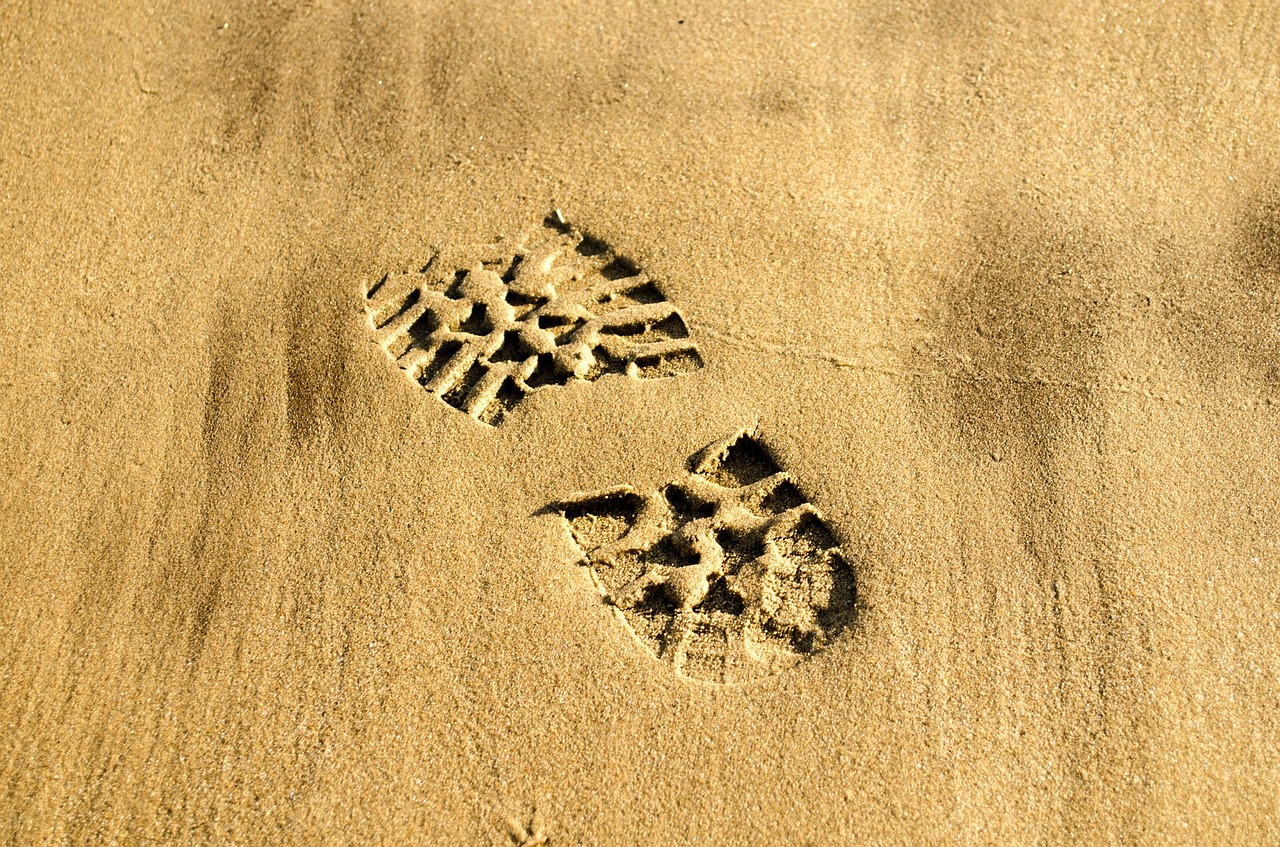
Leave footprints, take memories
This isn’t just a cute saying on a postcard – leaving the wilderness as it was and not taking anything from it is the unwritten rule of the outdoor world. Messing with the wilderness results in the destruction of ecosystems, the loss of habitat and the degradation of our pristine camping spots. That bush you just cut down for firewood? That might be a creature’s home. That trash you left behind in your campsite? That creates garbage hungry animals. Pack out what you pack in, don’t be those campers leaving you garbage pile for the next person.
3. Prepare for the Conditions: Don’t get Stuck in a Sticky Situation
A lot of people don’t understand that camping in Whistler can be intense, especially for the unprepared. While you can go to certain campgrounds with pools, RVs and other luxuries, most people end up trying their hand at the backcountry campsites that require a lot of know-how.
The best way to get ready for this kind of endeavour is to make sure you’re prepared. Always know the weather conditions and be prepared for anything. British Columbia is known for very intense weather. The frigid winter conditions are enough to freeze you solid and the hot summer months can be dry and sweltering. Most confusingly, even if the Village is humid and sweaty, a short jaunt up a nearby mountain and you’ll likely encounter snow. Even in July.
If you are not ready for the mountain, don’t forget there is still tons of excitement in the Village.
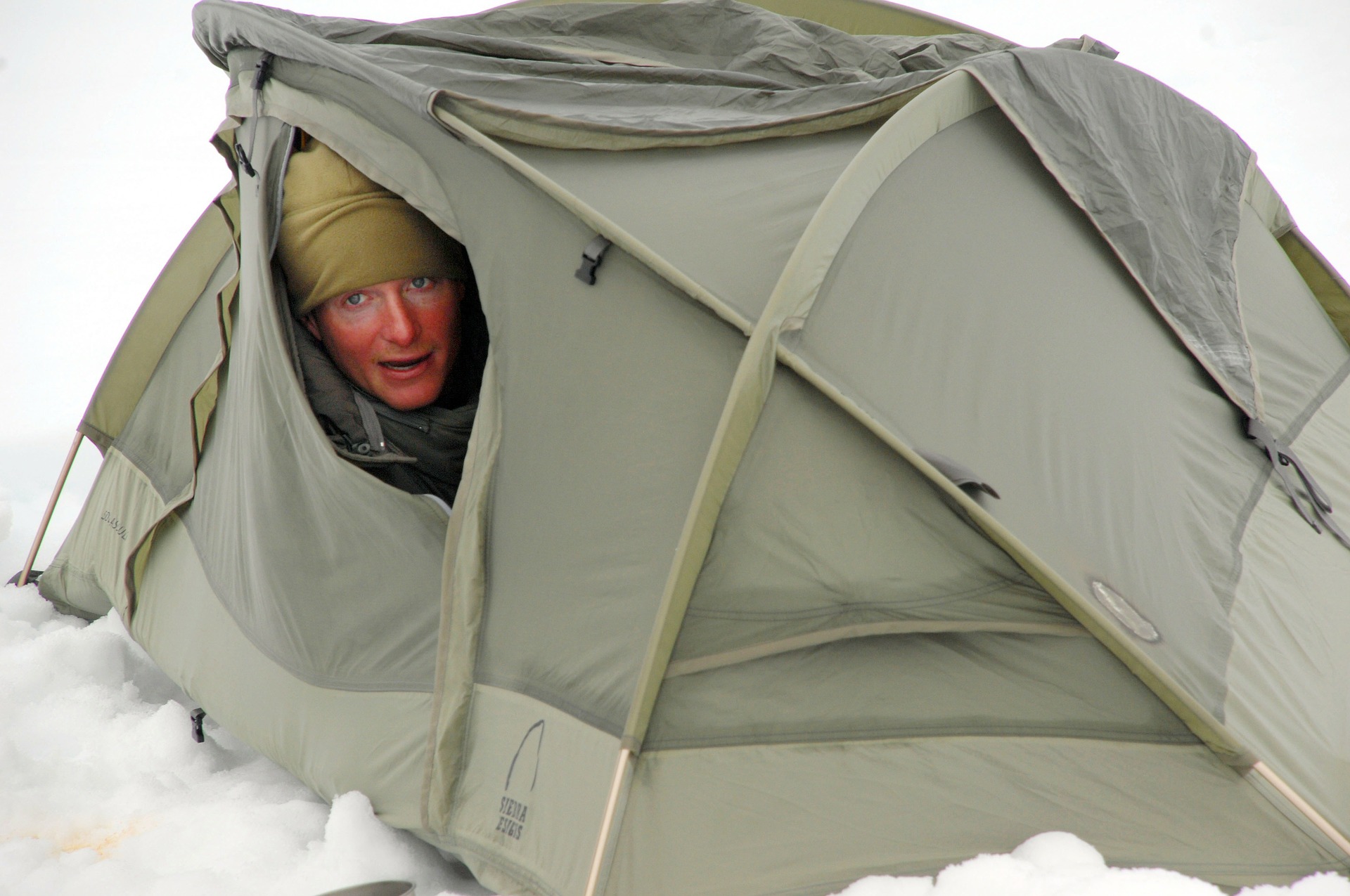
Know what to expect when you head into the backcountry
Always know the forecast and what kind of weather to expect, but also be prepared for anything. Bring warm clothes (always, even in summer), bring appropriate footwear just in case you have to hike out in an emergency and bring enough food for an extra day or two. Whether you’re camping solo or with a group, always make sure someone who isn’t camping with you knows where you are, what you’re doing, and when you’ll be back. That way, if something happens, you have someone on the outside to alert the authorities and search and rescue.
It’s important to always have the right gear without over-packing, too. Make sure you know where you’re going, what the weather is like, what the trail conditions are, how you should dress, and what you should have while you’re out there in the vast backwoods of BC. When in doubt, check with experienced campers, consult the Mountain School, and check out this list put together by Parks Canada for items you should consider packing when camping in British Columbia. Make sure you’re looking out for season-specific items, as well as general items you should include in your pack.
Gear Up: Outdoor Equipment and Apparel Stores
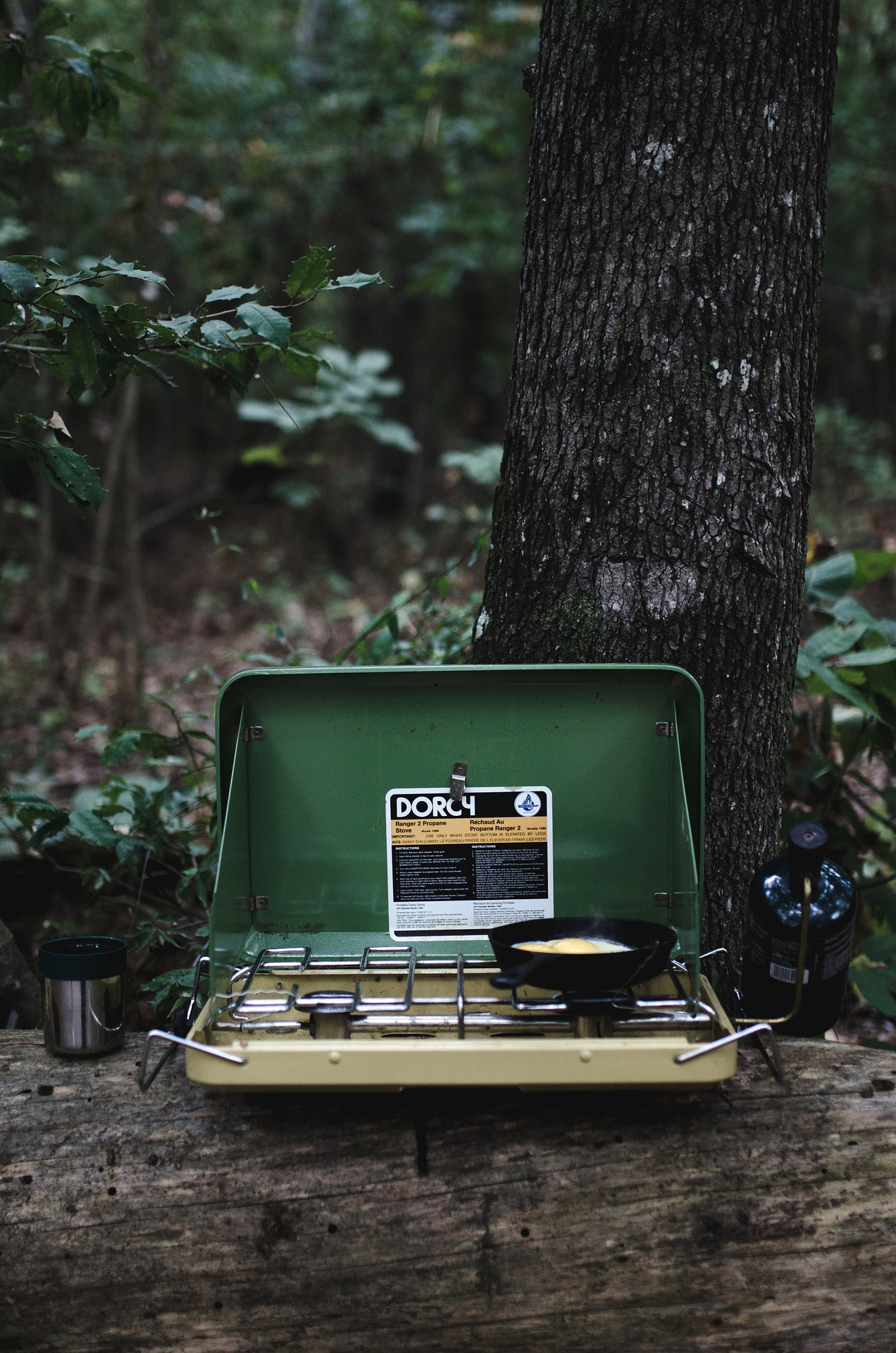
Forgot your camp stove? We know where to go
Did you make it all the way to Whistler, but forgot your tent? Maybe you’ve made a last minute decision to camp and didn’t come prepared at all. Thankfully, there are plenty of outdoor camping stores for you and your group to check out! No matter what you need, you’ll be able to find it. Check out a few of our local favourites:
- Summit Sports at 4923 Mountain Square
- Escape Route at 113-4350 Lorimer Road
- Excess Backcountry at Suite 106-4154
